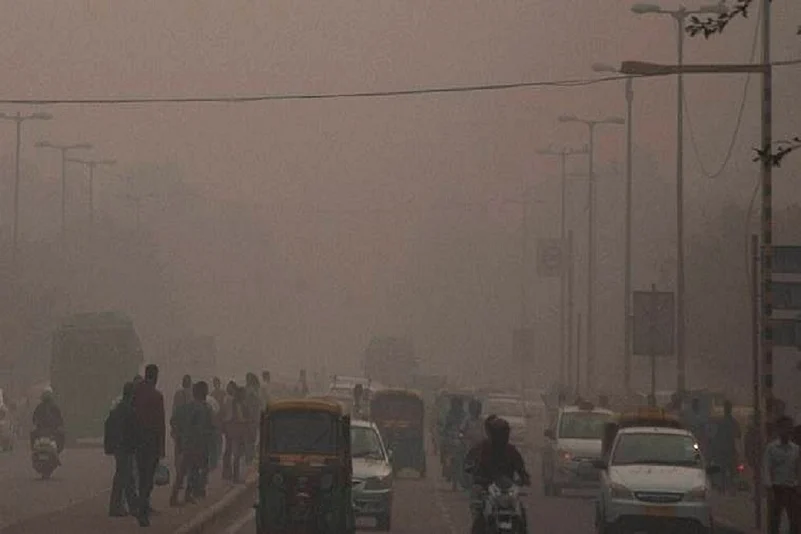The National Green Tribunal on Friday lifted the ban on construction in the National Capital Region (NCR) and permitted trucks to enter Delhi while directing the neighbouring states to submit an action plan on steps to curb pollution within two weeks.
The NGT, however, refused to lift a ban on the industrial activities causing pollution in Delhi-NCR.
"All directions in relation to emissions from industry, burning of waste and crop residue shall continue to be enforced," a bench headed by NGT Chairperson Justice Swatanter Kumar said.
The tribunal also directed the neighbouring states of Punjab, Haryana, Uttar Pradesh and Rajasthan to submit their action plan on steps taken to curb pollution within two weeks.
It gave a green signal to the construction of the Eastern Peripheral Expressway but said no dust pollution should be caused.
The bench, which was scheduled to start proceedings at 11.15 am after the full bench reference on retirement of Justice Dalip Singh, took up the matter at 10.30 am itself and passed the directions.
The bench also said that it will hear the Delhi government's second plea on odd-even today itself.
The tribunal also asked officials to charge Rs 5,000 fine on those parking vehicles on roadside in Sarojini Nagar market.
Earlier, on Thursday the centre had directed state-run NTPC, formerly known as the National Thermal Power Corporation, to mix crop residue with coal to generate power in all its plants, reported PTI.
The move is an attempt to curb stubble burning by farmers in Haryana and Punjab, one of the contributing factors to the pollution in Delhi.
"This step would give the farmers a monetary return of Rs. 5500 per tonne of crop residue and hence create a market for it," Power Minister R.K Singh said in a statement.
Speaking at a press conference Singh said, "Spoke to generators of NTPC Thermal power plant, they say it is possible for their fuel to consist of 10 percent straw or paddy straw. Now we will issue tenders for it."
He added that the step would reduce crop residue burning in agriculture-dominated states like Punjab and Haryana and hence would reduce the critical problem of air pollution in the nearby states.
The Power Ministry also highlighted that the infrastructure for sourcing the crop residue from farmers has already been set up.
Power Minister further said this move will help farmers earn around Rs. 11, 000 per acre from the sale of stubble/straw pellets. He also assured that the use of farm residue pellets would not result in a tariff escalation for the power generator.
“We are still in talks with all state governments to make this step mandatory for all the thermal power plants in their jurisdiction,” Singh said.
The plain farming chore of burning after-harvest paddy stalks as farmers prepared their fields in Punjab and Haryana for the wheat crop never headlined so much as in the past few years.
The swirling smoke from the fire was blamed for the thick haze that had shrouded New Delhi earlier this winter. The air quality dipped to ‘very poor’ zone, calling an immediate emergency in the state. Following the poor air quality, the government also ordered all the primary schools to remain shut till the situation settled down. Entering of trucks and construction works across Delhi-NCR was also banned. Parking fee was hiked to reduce the rise in air pollution through cars.
However, on Thursday the decisions, such as ban on construction works and entry of the trucks, were lifted.
The Delhi government also made announcements to reintroduce the odd-even rationing to curb the rising pollution in the state. However, the decision was kept on hold after NGT opposed to allowing the exemption of the women drivers.
On Friday, the national capital recorded a little respite from air pollution. Though, during the afternoon the situation returned back to the same as on the last week, with pollution touching ‘hazardous’ levels.
(With Agency Inputs)


























